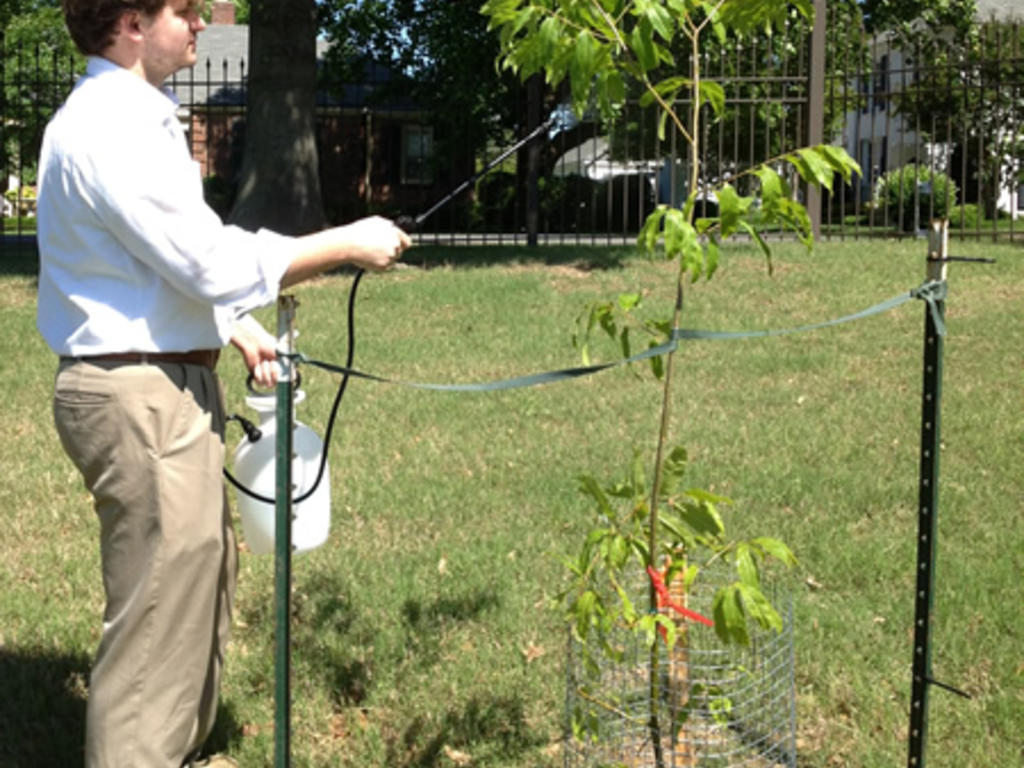Two young American chestnut trees were planted this month in front of Palmer Hall and on the north end of campus by the intramural fields as part of Rhodes’ certified arboretum. Adam Howard ’15 and Brian Foshee, director of Physical Plant, helped to assess the locations ensuring the best drainage for the trees.
Given to Rhodes by Dr. Hill Craddock (University of Tennessee at Chattanooga, Department of Biological and Environmental Sciences) on behalf of The American Chestnut Foundation (TACF), the chestnut tree is now a rare species that previously constituted 40 percent of forest ecosystems. Starting in the early 1900s, the chestnut tree has faced a devastating extinction due to an introduced fungal disease.
Says Rhodes Biology Professor Terry Hill, “Where they used to dominate the canopy of eastern deciduous forests, chestnuts are now reduced to playing the role of minor understory saplings–and even these last only a few years before succumbing to chestnut blight.”
In order to resurrect the American chestnut tree, efforts have been made by creating genetic hybrids between Castanea dentata and a related Chinese species, which is resistant to the blight. Rhodes has obtained two trees from the breeding program run by The American Chestnut Foundation, which seeks to develop a disease-resistant tree in addition to reintroducing the species into forest ecosystems. As the trees originate in the Eastern forests of the United States, Rhodes is fortunate to take part in the research process.
TACF is giving Rhodes the trees because of its established arboretum, and Hill says, “They have no data yet regarding whether trees with this particular genetic makeup will survive in soils like those in Shelby County, and so our test will be contributing to the scientific program of the TACF.”
Should the trees flourish within a few years, Rhodes will be able to claim a distinction that most other arboreta cannot.
(information compiled by Rhodes Student Associate Emily Sullivan ’13)
